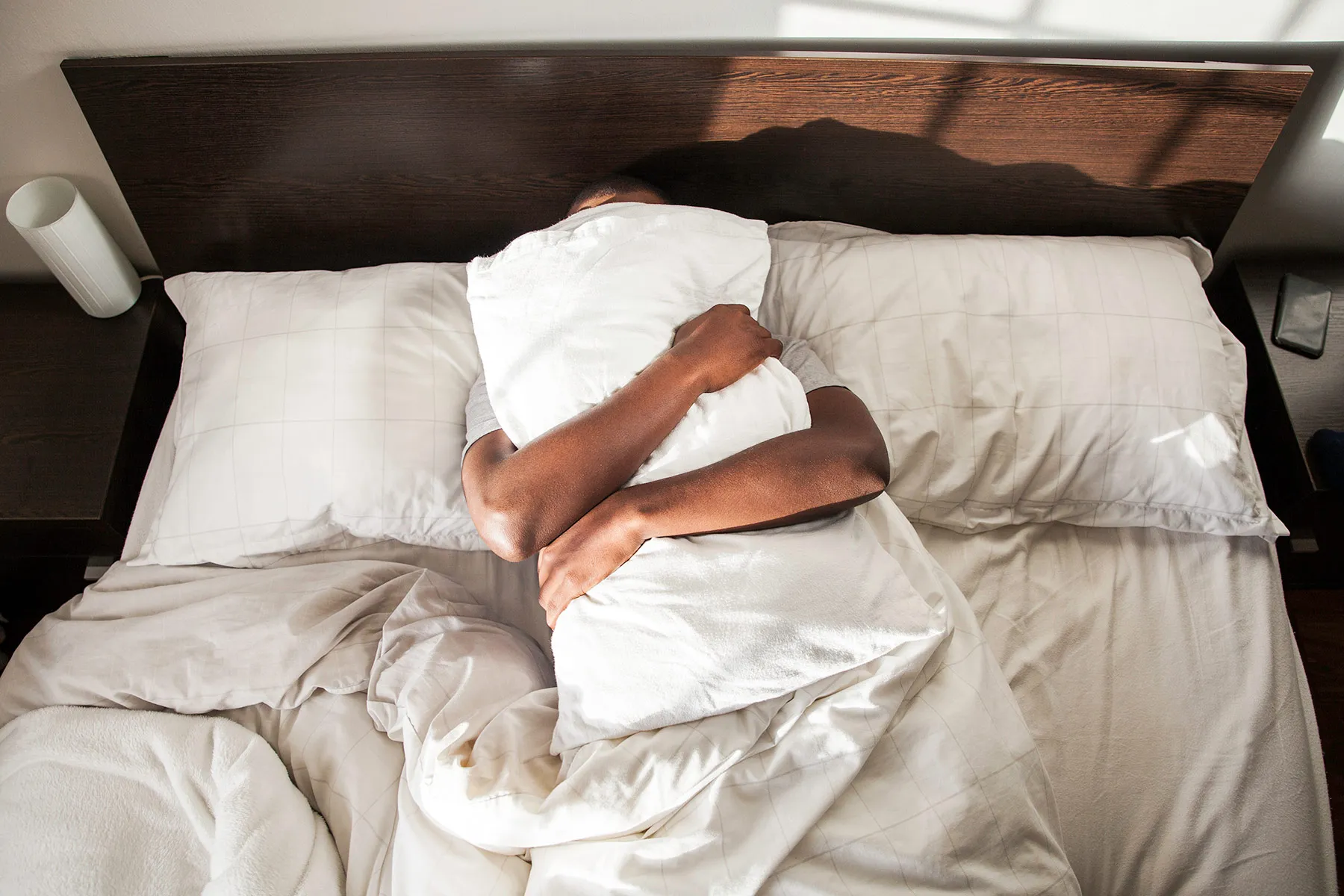[ad_1]
When it comes to staying healthy, medical experts always talk about diet and exercise. They don’t talk about sleep, but in my experience sleep has been among the best medicines. When I sleep well, I get sick less often, think better and have more energy. Studies confirm that insomnia (difficulty sleeping) is a big problem for people with multiple sclerosis (MS) and is closely linked to one of the worst symptoms, fatigue.
I have often written about sleep for diabetes publications because poor sleep worsens blood sugar control. I find that a night of poor sleep leaves me a bit depressed and anxious, which studies show is a common pattern in people with MS.
They say that MS is caused by our immune system and that sleep is vital for good immune function. Sleep is when the immune system can get to work without all the demands of waking life. People with insomnia have higher levels of inflammatory immune system proteins such as tumor necrosis factor, and inflammation is an important part of MS. So most of us can benefit from more sleep.
The problem is that MS can interfere with sleep, because we tend not to move as much while awake as healthy people. Thus, our body does not get tired, even if our brain does. And if your body isn’t tired, it won’t sleep (unless you’re on drugs). Other MS symptoms, such as pain, muscle spasms and bladder problems, can also interfere with sleep.
When we go to bed and can’t sleep, or wake up for some reason, just lying there thinking or tossing and turning won’t help. If you have good ideas that are more important than sleep, write them down so you don’t forget them! (It happens to me sometimes.)
But if you really want to fall asleep, don’t give it more than 15 or 20 minutes. If you’re still awake, get up and do something useful, or stay in bed and do something really boring. Nothing puts me to sleep faster than reading a boring book or doing a silly puzzle, but doing the dishes or doing gentle exercise seems to lead to better rest.
Vigorous exercise before bed can keep some people awake, but vigorous exercise isn’t really a thing for many people with MS. Gentle exercises – I do seated qi gong or very light (2lb) arm exercises – really help me relax and fall asleep. Sitting at a computer scrolling through social media makes it harder.
Sleep experts talk about having a bedtime ritual, which means regular behavior that tells your body “time to relax.” Often this includes turning down the lights, remembering good things that happened that day, making a list of what you will do tomorrow, some gentle stretching, maybe drinking herbal tea, warm milk, listening to music. peaceful music or relaxation sounds, or eat a snack. (No caffeine!)
I find it helpful to remember my loved ones and give thanks for what I have received. If possible, resolve small issues, such as a misunderstanding with a spouse that you might be worried about. As marriage counselors say, don’t go to bed angry.
It is important to have a quiet, dark and comfortable place to sleep. Unfortunately, not everyone has this, but if you can create such space, you’ll definitely sleep better and feel better.
It helps to have a sleep schedule. I used to work night shifts as a nurse and sometimes wonder if that contributed to my MS. Some studies have shown that shift work can affect many people’s immune systems. Now I try to fall asleep, go to bed at the same time, turn off the light after 30 or 60 minutes of reading. I try to go outside every day, especially on sunny days, because the daytime sun helps people sleep.
This schedule has worked very well, except that I have to get up to urinate (actually autocath myself) once a night. Then I go back to bed, but if sleep doesn’t come quickly (within 5 minutes) I get up and stretch, write or do the dishes.
And the naps? Nap time is a ritual in many cultures, and for people with MS, napping can be unavoidable. Short naps (called power naps) are great, and you might even be able to take them during a lunch break at work. I also like longer naps, but some scientists say long naps can interfere with nighttime sleep. I haven’t noticed this problem, but maybe you can see how they work for you.
I advise not to use sleeping pills. They’re not widely prescribed anymore, because they can leave people as tired as if they hadn’t slept, and they’re not safe. Especially for older people with MS, they cause too much risk of falling when we get up while still under their influence. This applies to cannabis as well as prescription drugs.
At this point in my life, sleep has become one of my favorite things. No stress, no pain. I imagine all my little cells going around repairing the damage and preparing my body for the next day. And I look forward to dreams, like trips to another world or a big movie. Sometimes in dreams I have my full abilities back, sometimes not, but they are always interesting and often teach important lessons.
We live in an anti-sleep society, where we are expected to be productive all the time. But don’t believe this hype. Sleep is great medicine.
To connect with others living with multiple sclerosis, join our MS Facebook Support Group.
Photo credit: AfricaImages / E+ Images via Getty Images
[ad_2]
Source link

